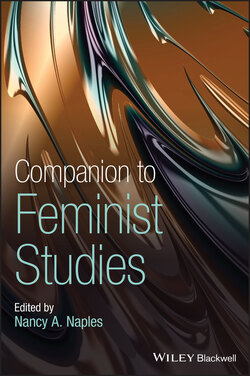Читать книгу Companion to Feminist Studies - Группа авторов - Страница 23
Biological Theories about Sex and Gender
ОглавлениеFor some decades the majority of natural and social scientists have come to view extreme biological determinism as an untenable position because of the incontrovertible evidence that human behavior is strongly influenced by social and cultural factors. Thus very few of them would identify as hardline biological determinists and what becomes a matter of dispute is the extent to which scientists emphasize the social or the biological. However recent developments in neuroscience, evolutionary psychology and the “new genetics” have bolstered biologically based explanations of male–female differences (e.g. Buss 1995; Baron‐Cohen 2004; Brizendine 2007), provoking a second wave of feminist critiques of what they see as sexist and deterministic theories and assertions.
As discussed earlier, the aspect of biology seen as central to male–female difference or women's character has shifted over the centuries. Scientists no longer hold that important consequences arise because female bodies are moist whereas those of males are dry, as Galen asserted, or that female moodiness is because the womb has come adrift and is causing havoc, as Plato suggested. There is a number of theories that are actively discussed in recent and current literature and they focus on genes and evolution, hormones, and brains. The links between genes, evolution, hormones, and brains are strong. For example, biological differences between the sexes in brain function are seen by writers such as Herbert (2015) as due to sex‐linked hormones activated in utero and in the first months of life that shape the brain of males and females in different ways. In the following sections some recent theories will be elaborated, along with critical reactions to them.
